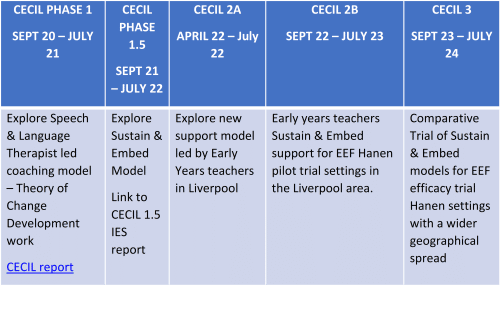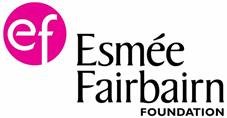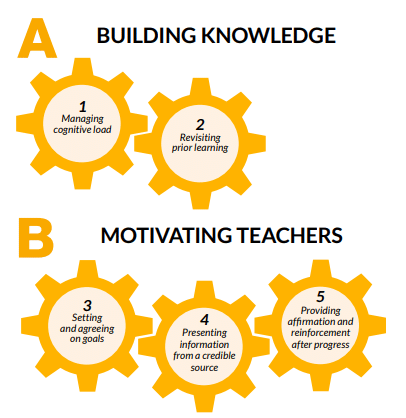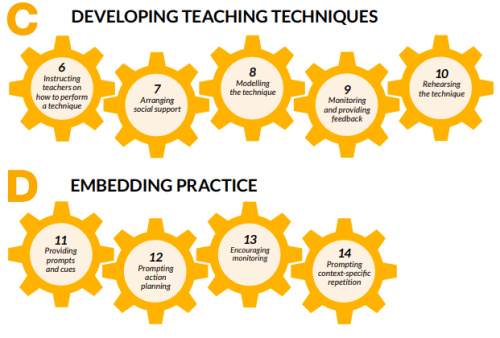We have been leading on the Coaching, Early Conversations, Interaction and Language (CECIL) project, which is generously supported by Esmée Fairbairn Foundation, The Lindsell Foundation and SHINE Trust.
The aim of CECIL is to address inequality in children’s early language and communication skills, by supporting high-quality practice within early years settings.
The approach prioritises those serving disadvantaged communities, to ensure that all children get what they need to thrive in their setting and when they start school.
Language linked to disadvantage gap
Our research has contributed to the evidence over the years that early language skills are a critical factor in social disadvantage and in the intergenerational cycles that perpetuate poverty.
There has long been compelling evidence that greater socioeconomic disadvantage is associated with weaker language skills at school entry. Once gaps are created early, they can be difficult to disrupt through the lifespan. Vocabulary at age five has been found to be the best predictor of whether children who experienced social deprivation in childhood were able to ‘buck the trend’ and escape poverty in later life..
The case for investing in early language and communication as a route to narrowing the disadvantage gap among children is well made and accepted. This has been exacerbated by the pandemic where the negative impact of the pandemic on the youngest children has been particularly identified in their speech and language skills (Ofsted)(EEF).
The CECIL theory of change
- Transforming the early language abilities of children particularly in PVI settings requires transforming the skills and capabilities of those who work with them through effective CPD.
- A coaching model, whereby staff in early years settings are supported by experienced and expert practitioners to use, test and reflect on early language strategies, observe how the children respond, and then embed these strategies into their practice, is more effective than a standalone training package.
- A sustained approach of light touch expert support beyond the initial training phase leads to higher quality implementation.
The importance of Continuing Professional Development (CPD)
The EEF Effective CPD report points out how the impact of high-quality professional development on a child’s attainment compares to the impact of having a teacher with 10 years’ experience rather than a new graduate. A key driver of quality in a setting is knowledgeable and capable practitioners effectively achieved by CPD.
The need for CPD in the PVI sector
The Study of Early Education and Development (SEED) report in 2018 recommended that “future research should consider ways in which practice can be enhanced to increase language development in children attending a group setting, because although a number of areas of development were shown to benefit from setting attendance including socio-emotional and cognitive development, short-term language benefits of group settings were not found in SEED.”
The vast majority of settings in the SEED report were from the PVI sector. Nationally, around 70% of two – four-year olds are in the PVI sector, research by the Education Policy Institute has recorded that practitioners working in PVIs are less likely to hold the same level qualifications or receive the same opportunities as those working in schools and therefore PVIs could be most in need of CPD for their staff.
Sustained CPD
There is a growing body of evidence on the positive effect of early language and communication ‘training interventions’ and our sister organisation the EEF is currently trialling a number of different programmes to build the evidence around what works. However, defined training programmes tend to be time limited and do not provide ongoing support to practitioners to embed their new skills and implement them in their own practice, allowing them to come back with questions and request further support when needed. CECIL is exploring different approaches which offer sustained expert coaching, modelling and mentoring support after the initial training phase in order to embed and sustain good practice.
Conceptualising the CECIL project as a CPD offer has helped us to think about the way in which early years practitioners both learn about effective strategies and implement them in practice. The EEF Effective CPD Systematic Review & Guidance Report has been helpful in prompting questions about the mechanisms of effective CPD that form part of the CECIL approach, especially the role of mechanisms to embed practice. CECIL is exploring CPD models underpinned by evidence based principles, the EEF guide advises that four key mechanisms are required for effective professional development to have an impact.
The CECIL approach will prioritise working on mechanism D – Embedding Practice, but will also be addressing C (Developing Teaching Techniques), B (Motivating teachers) and A (Building knowledge) mechanisms if and when required.

Project partners
A special thanks to the organisations that have partnered with us on the CECIL project.






